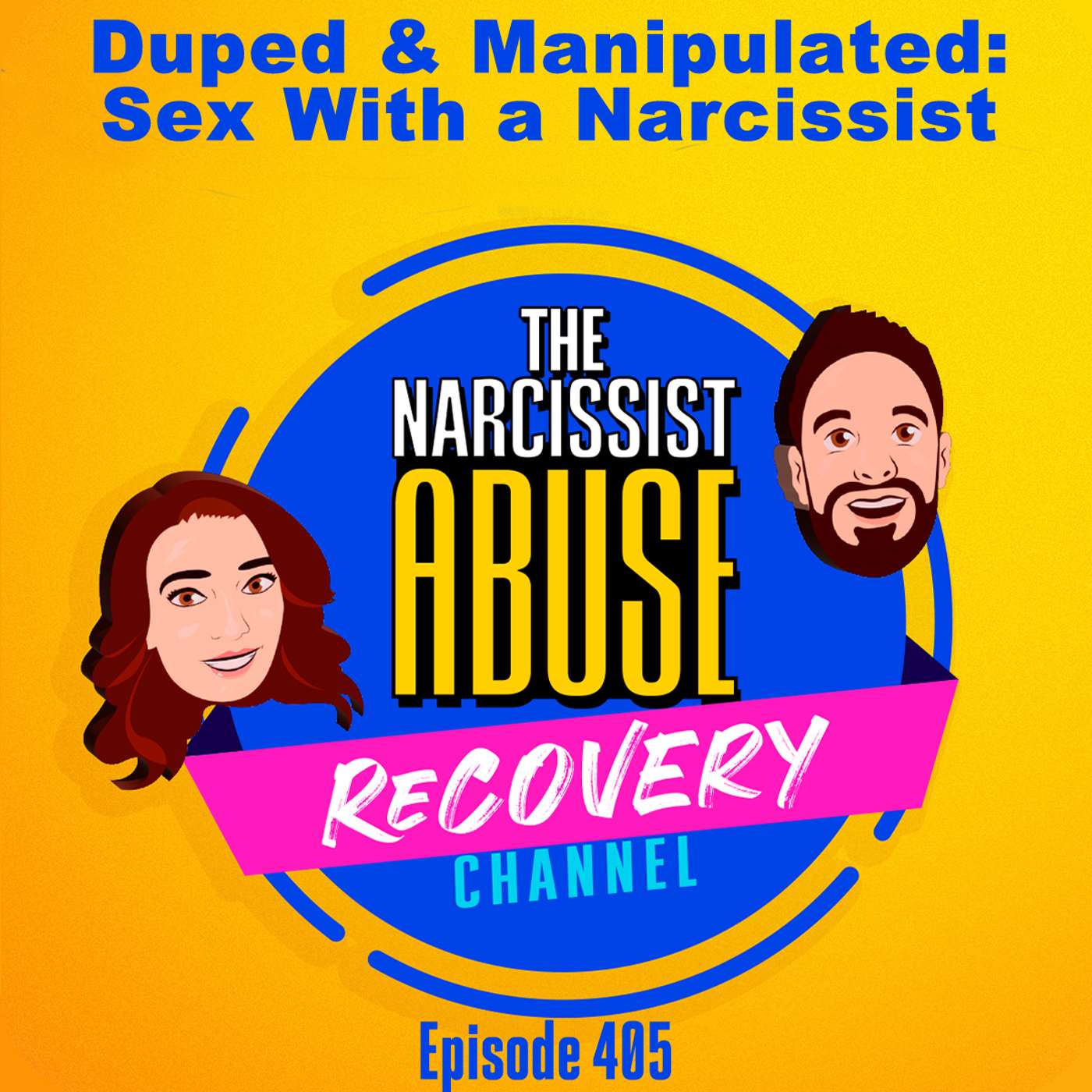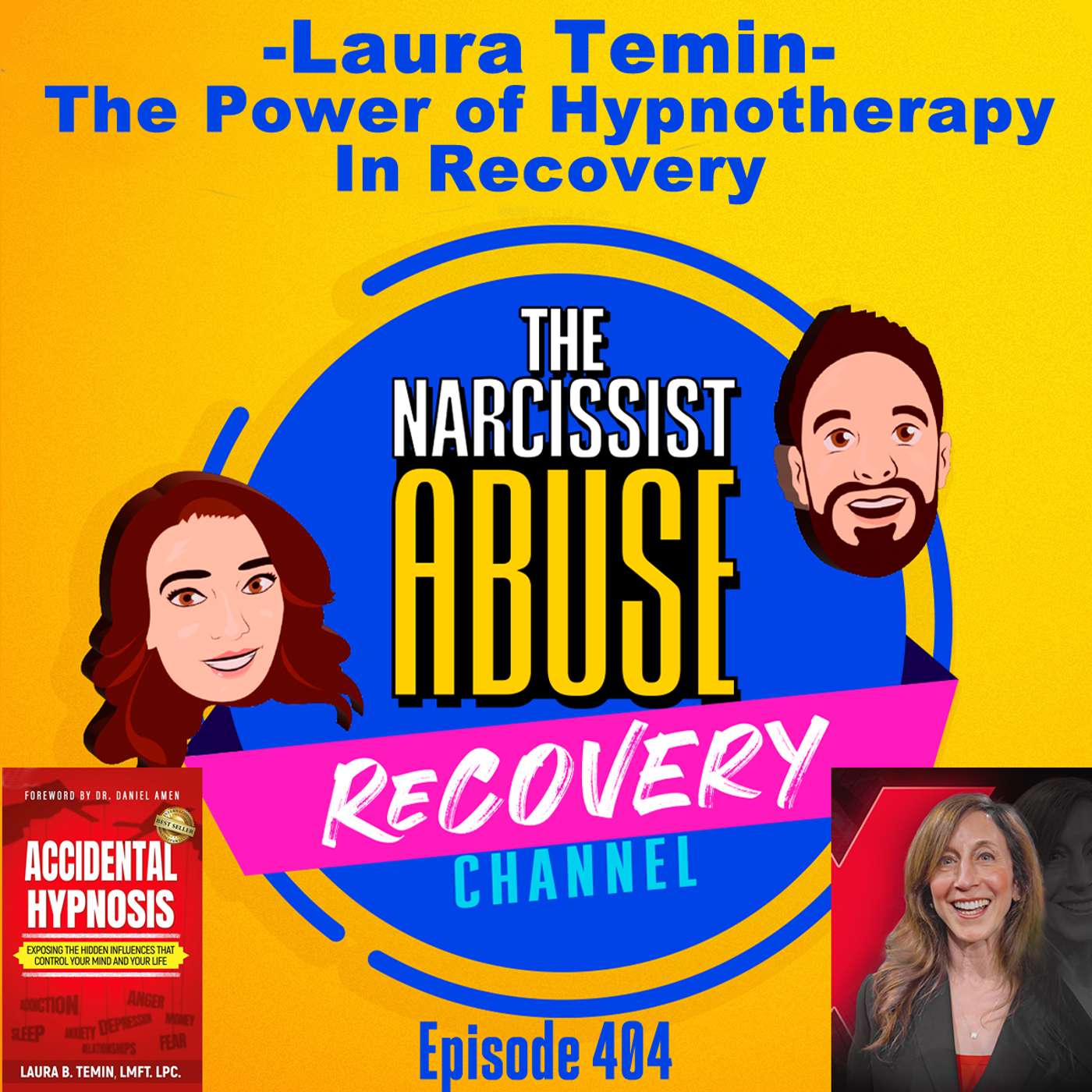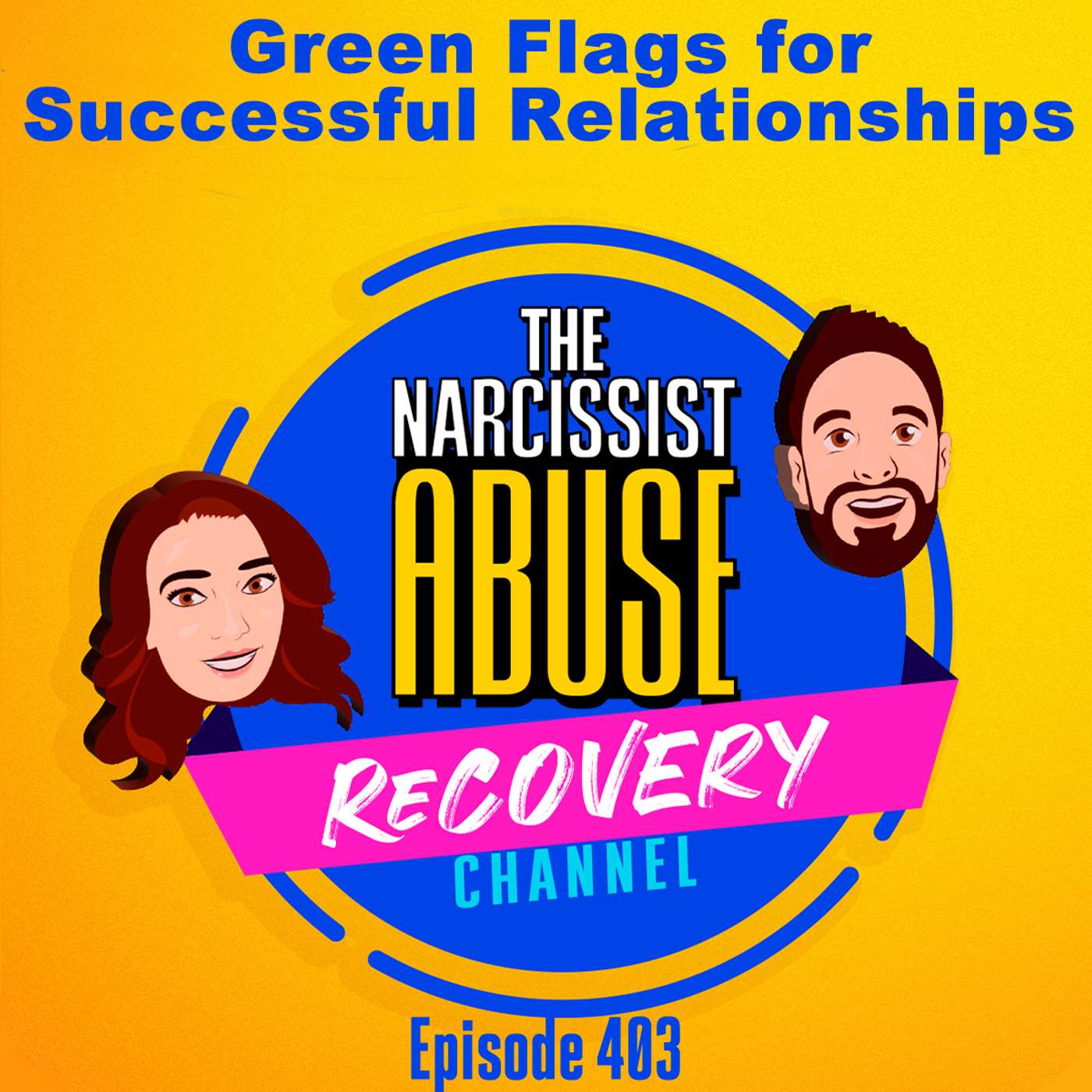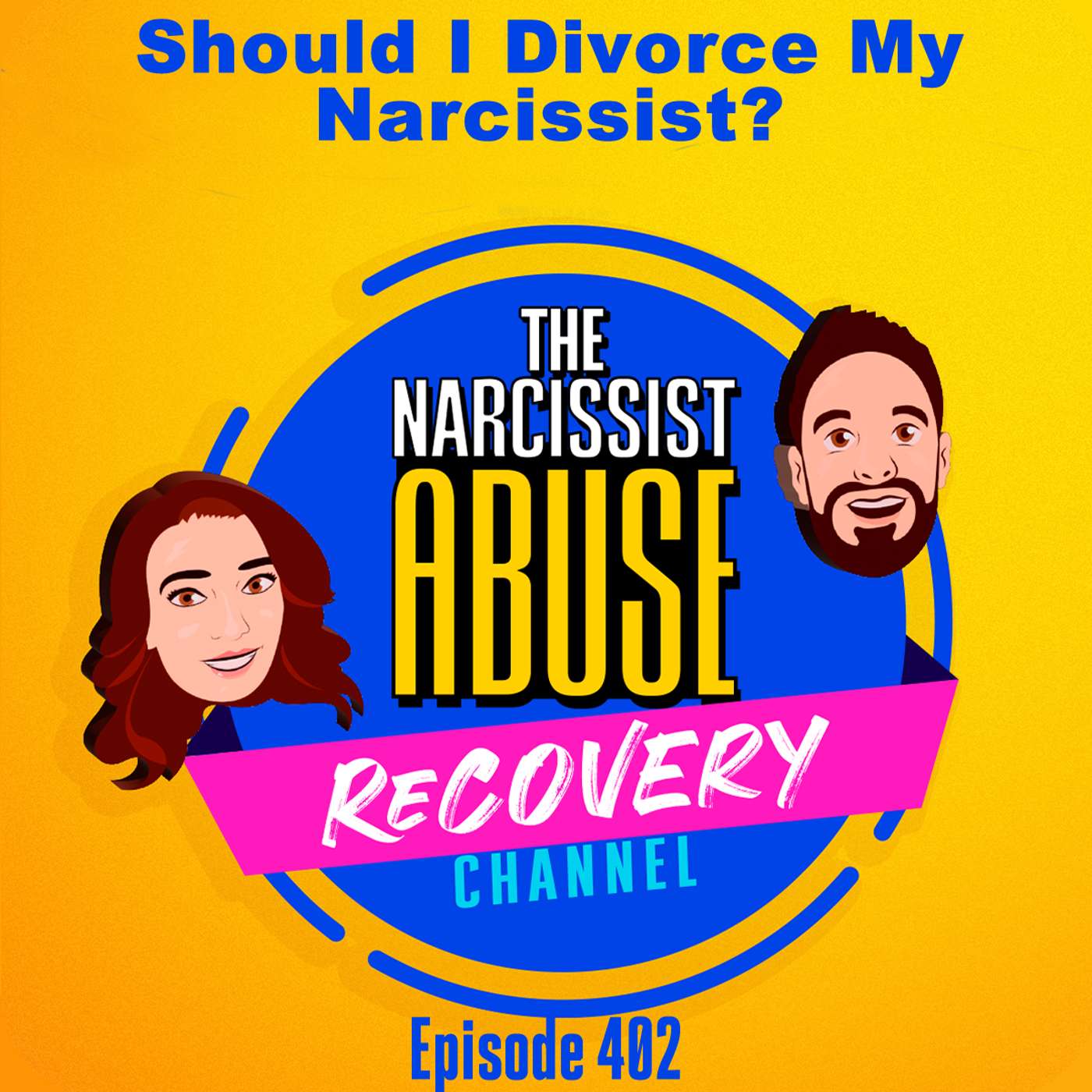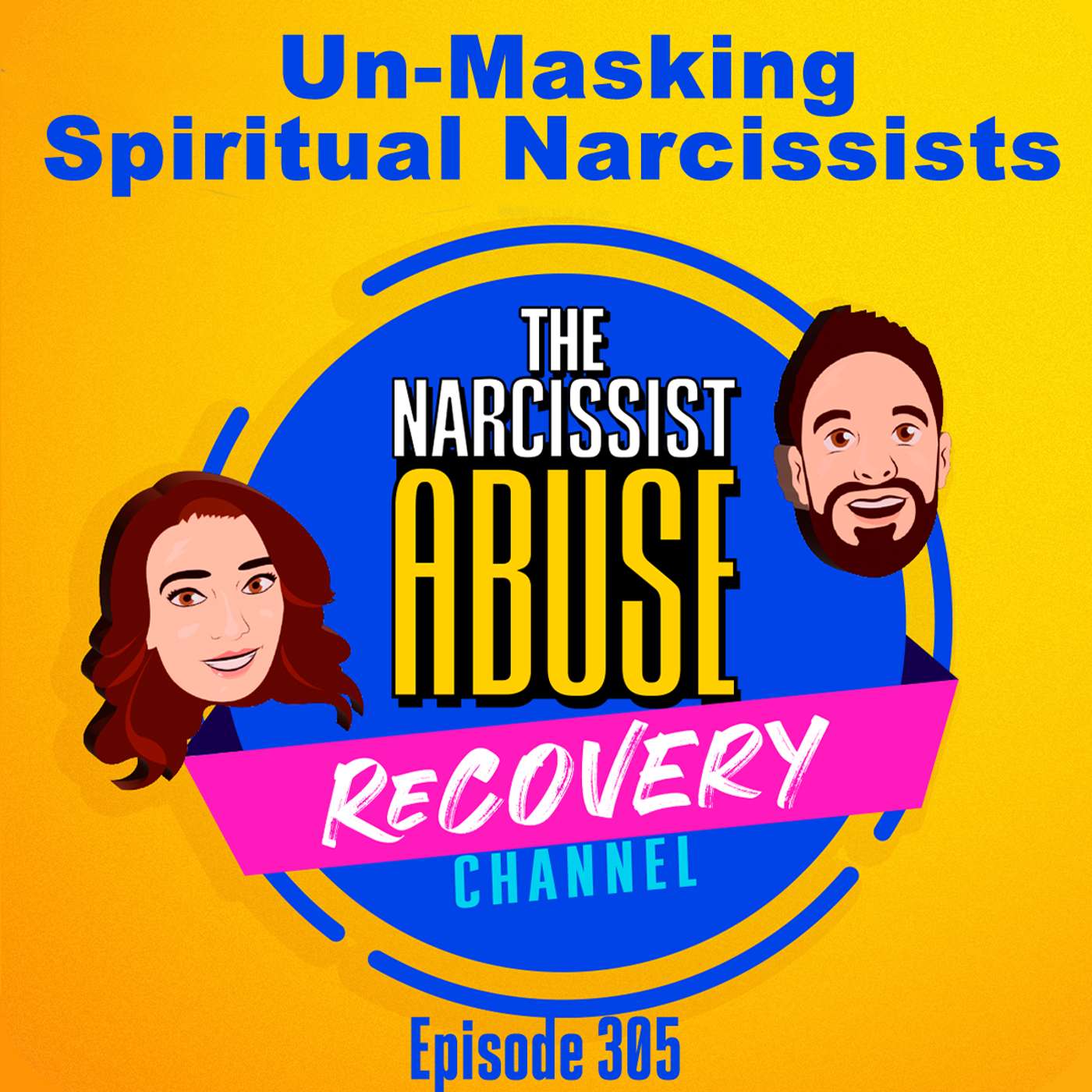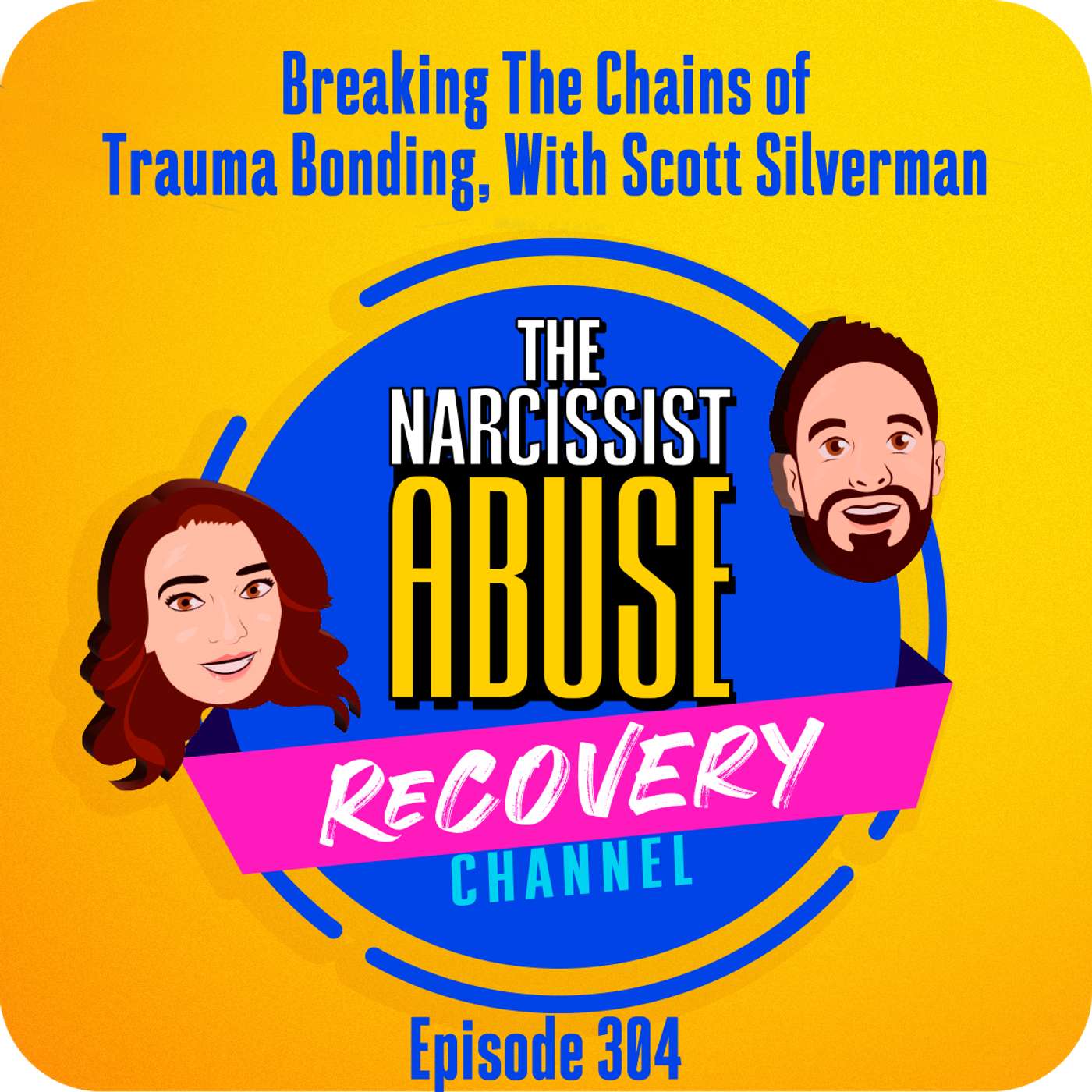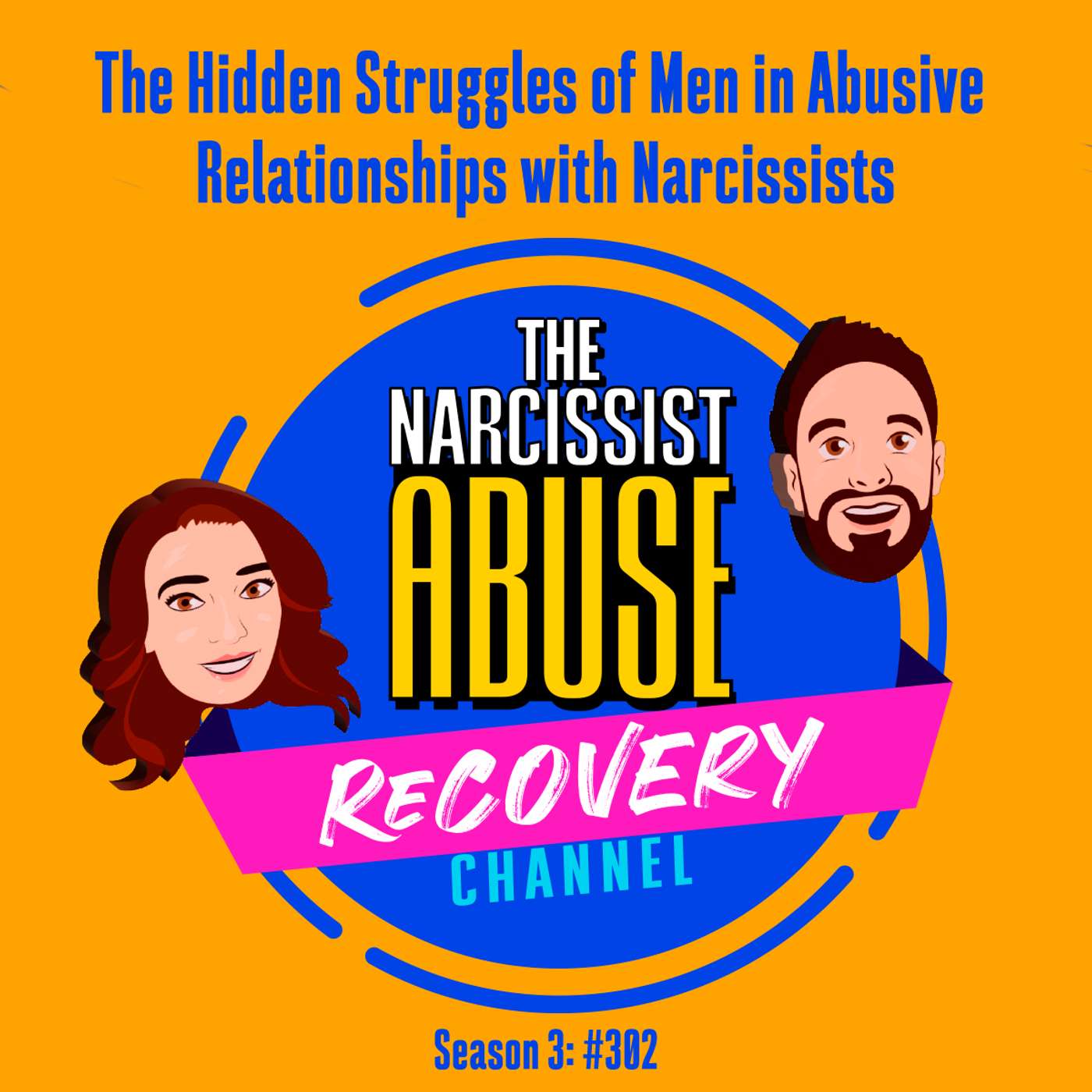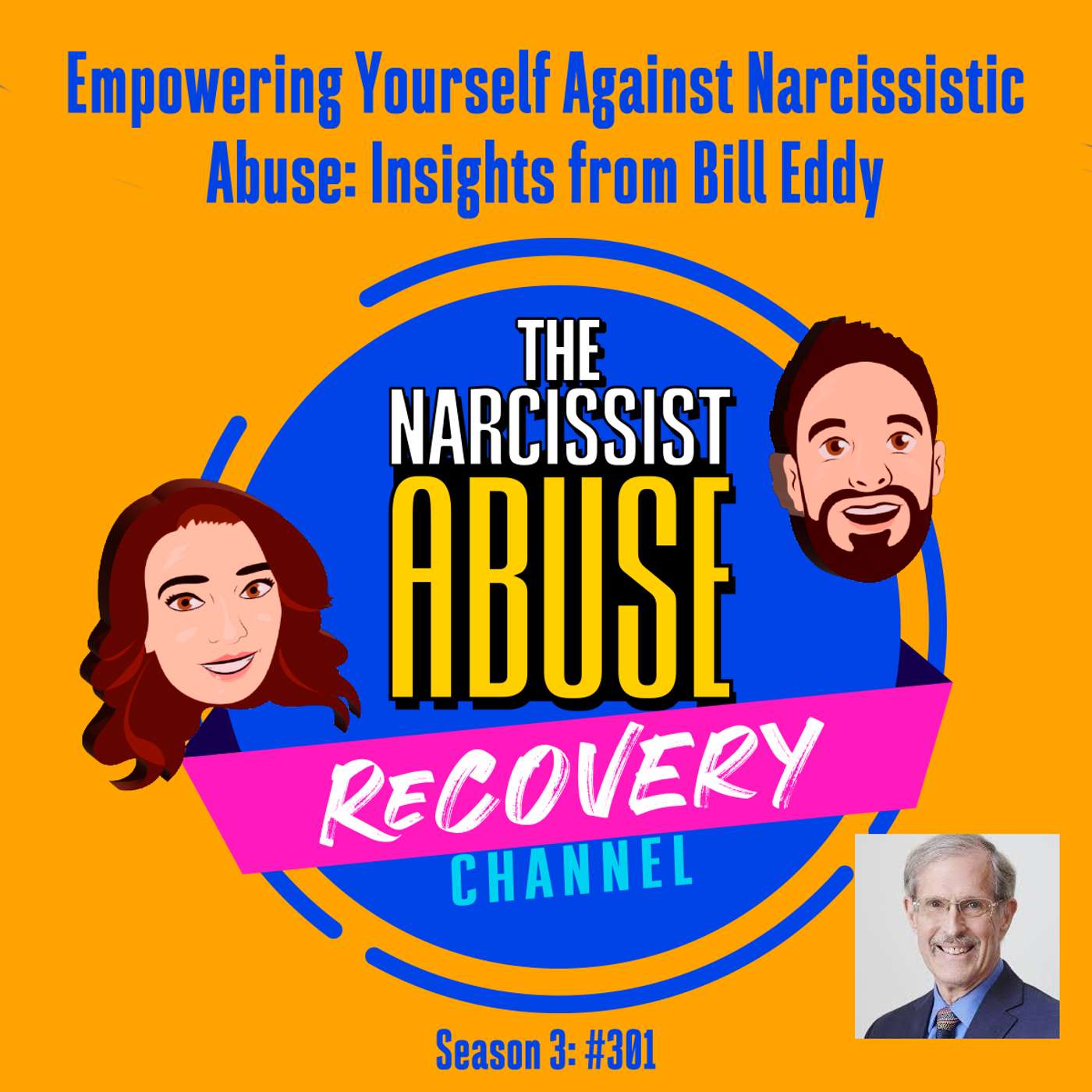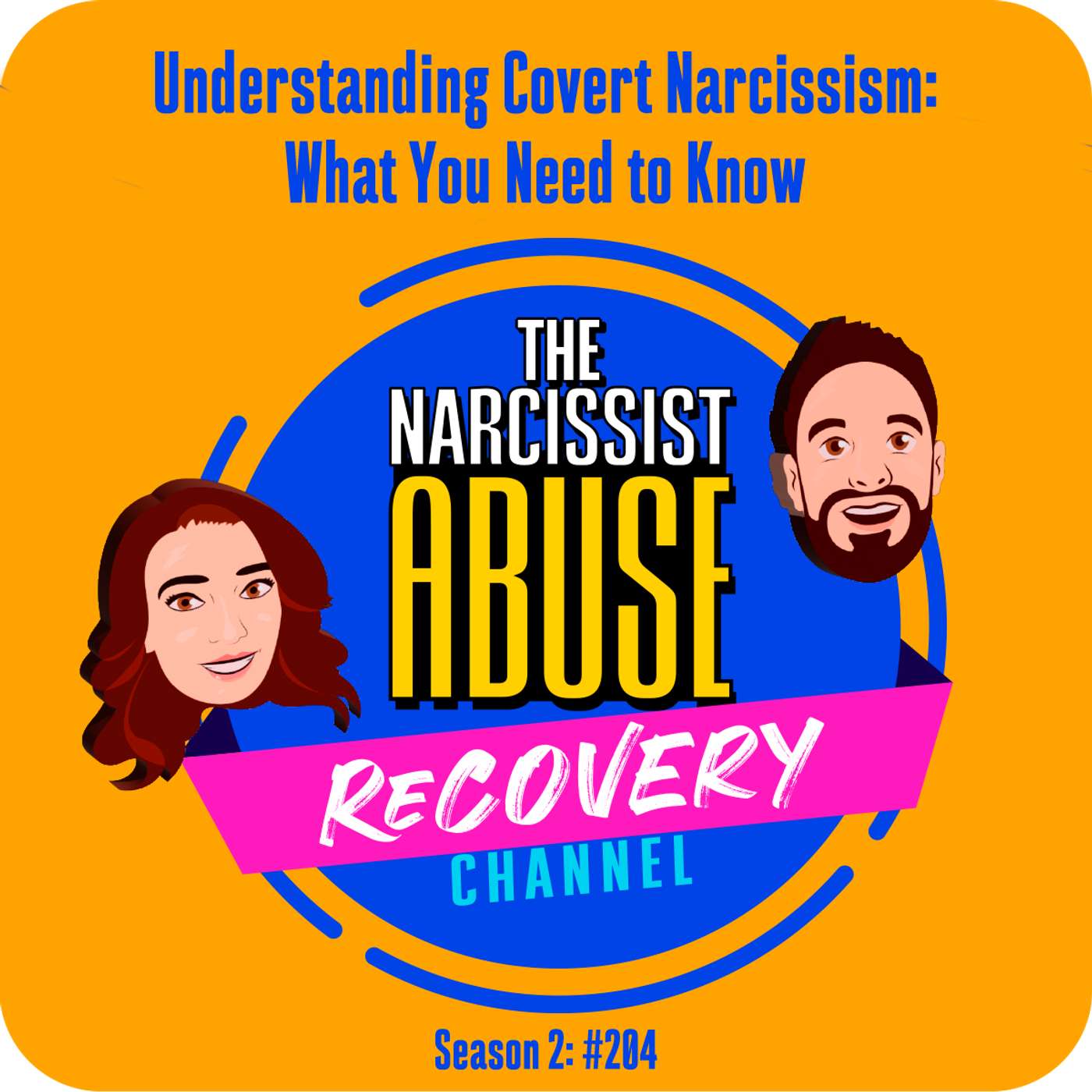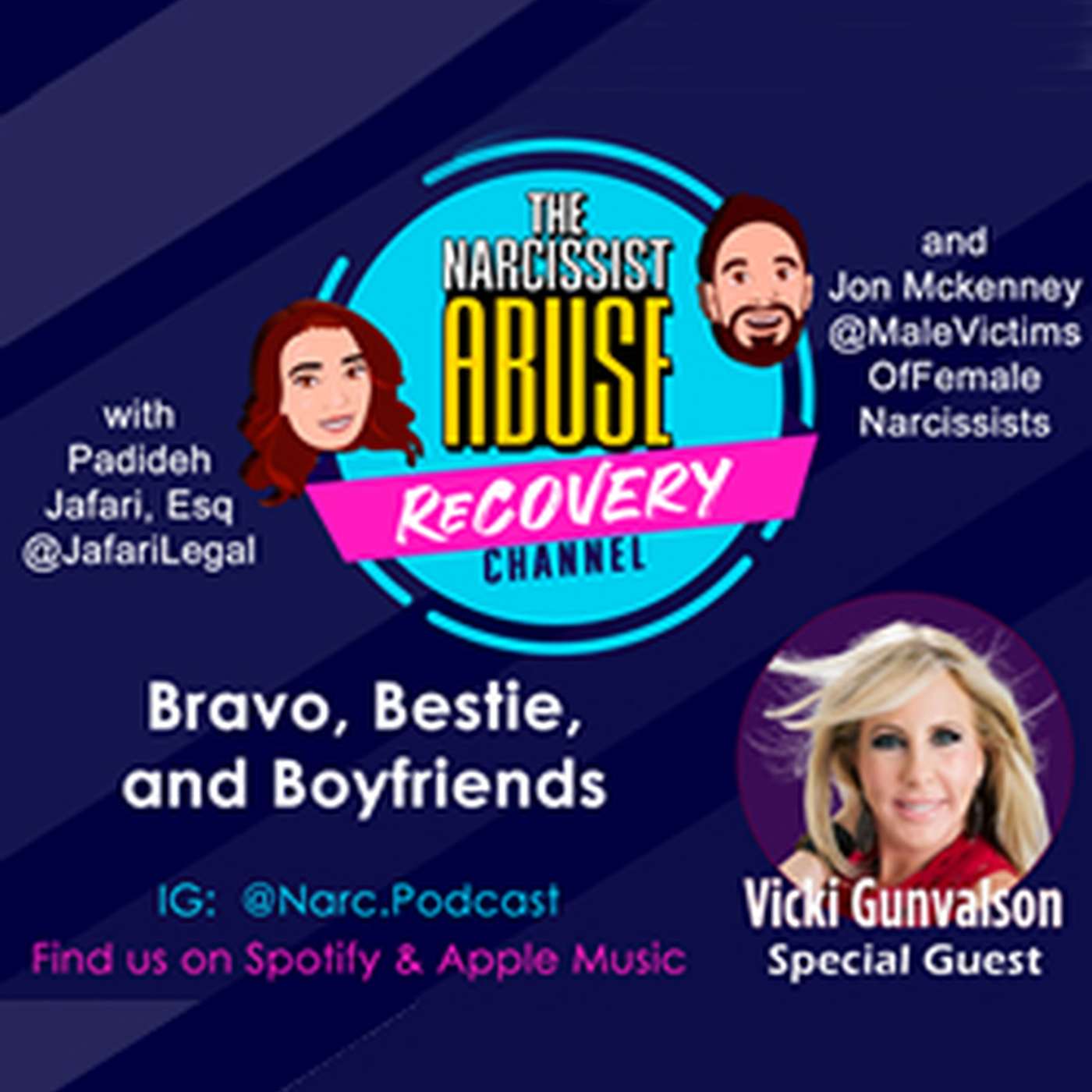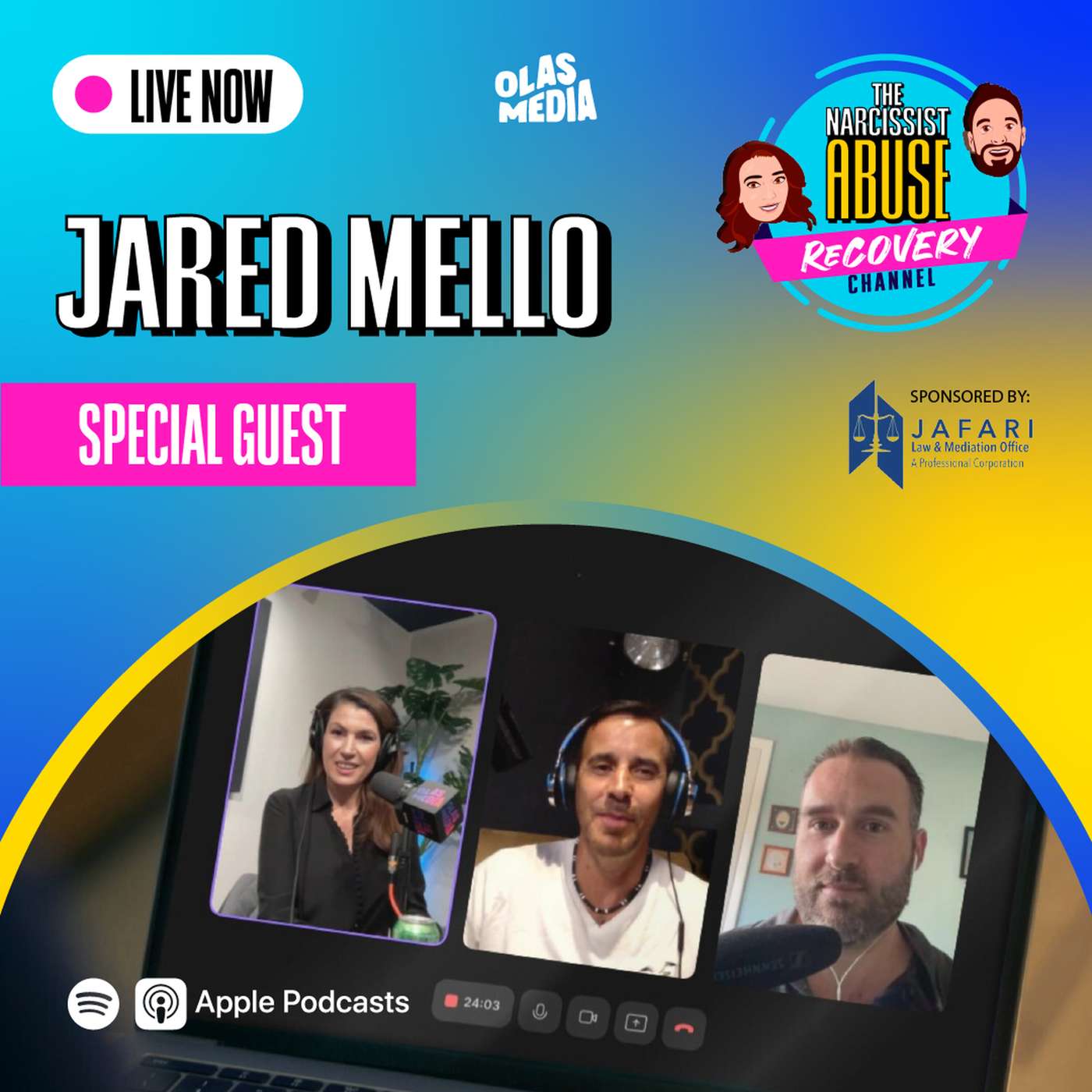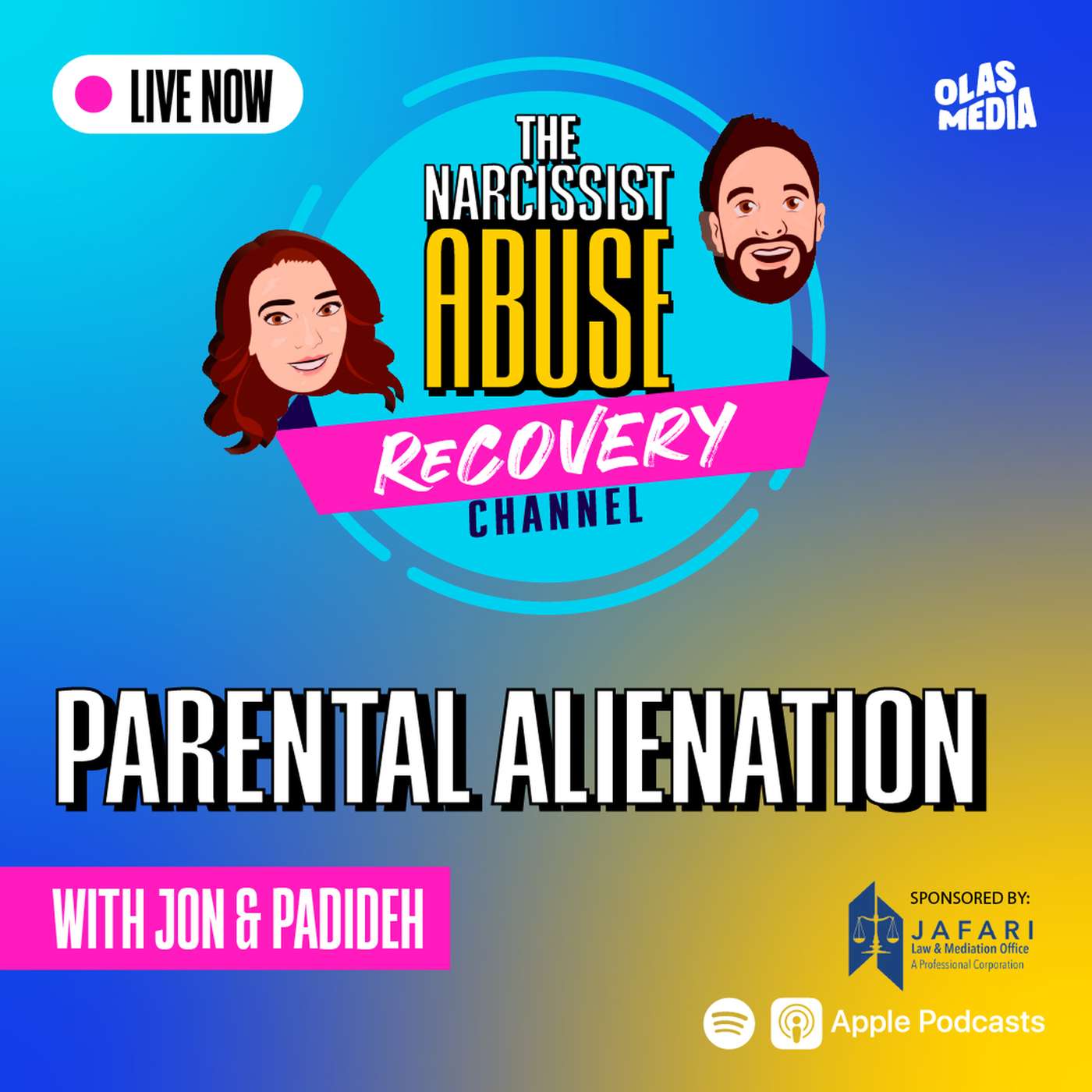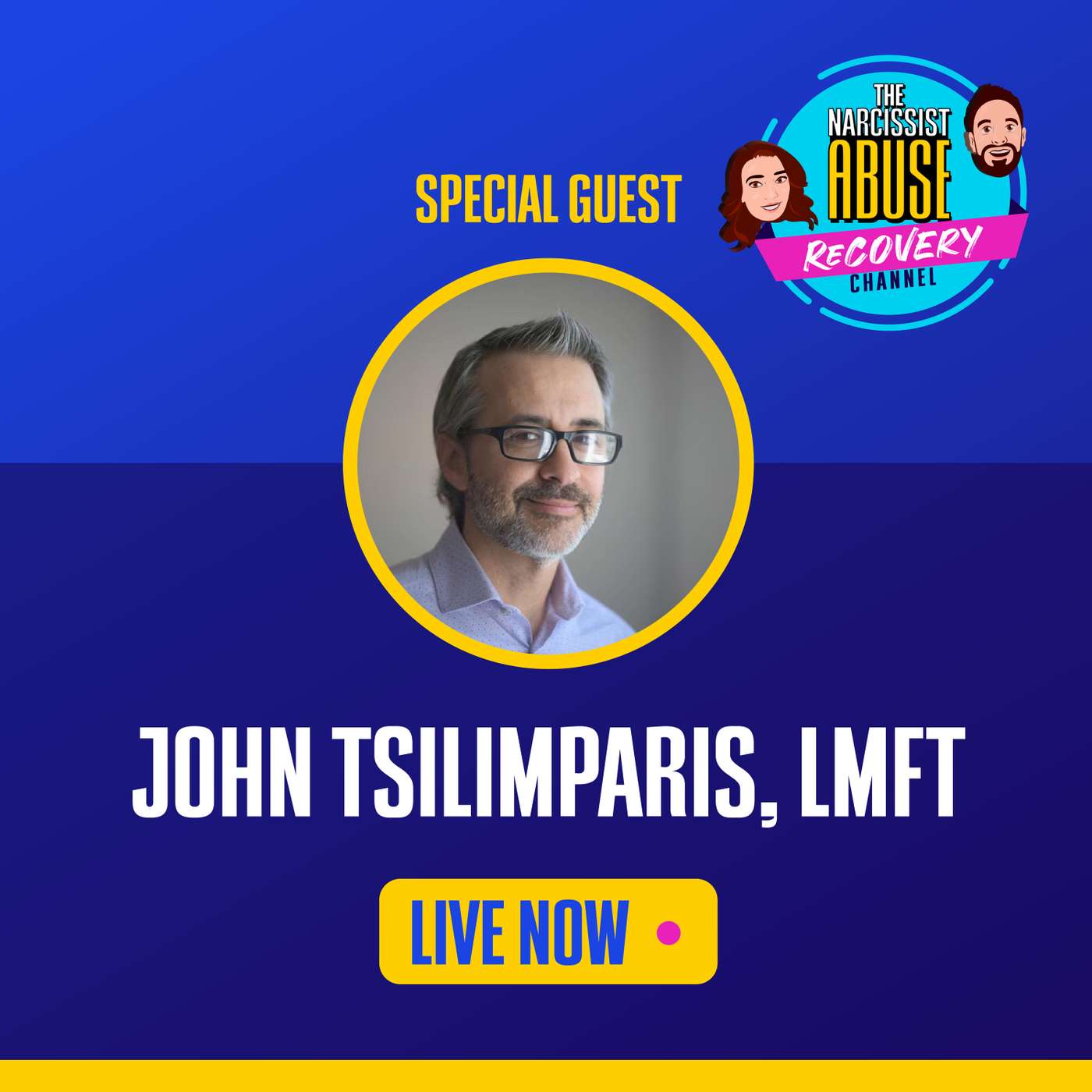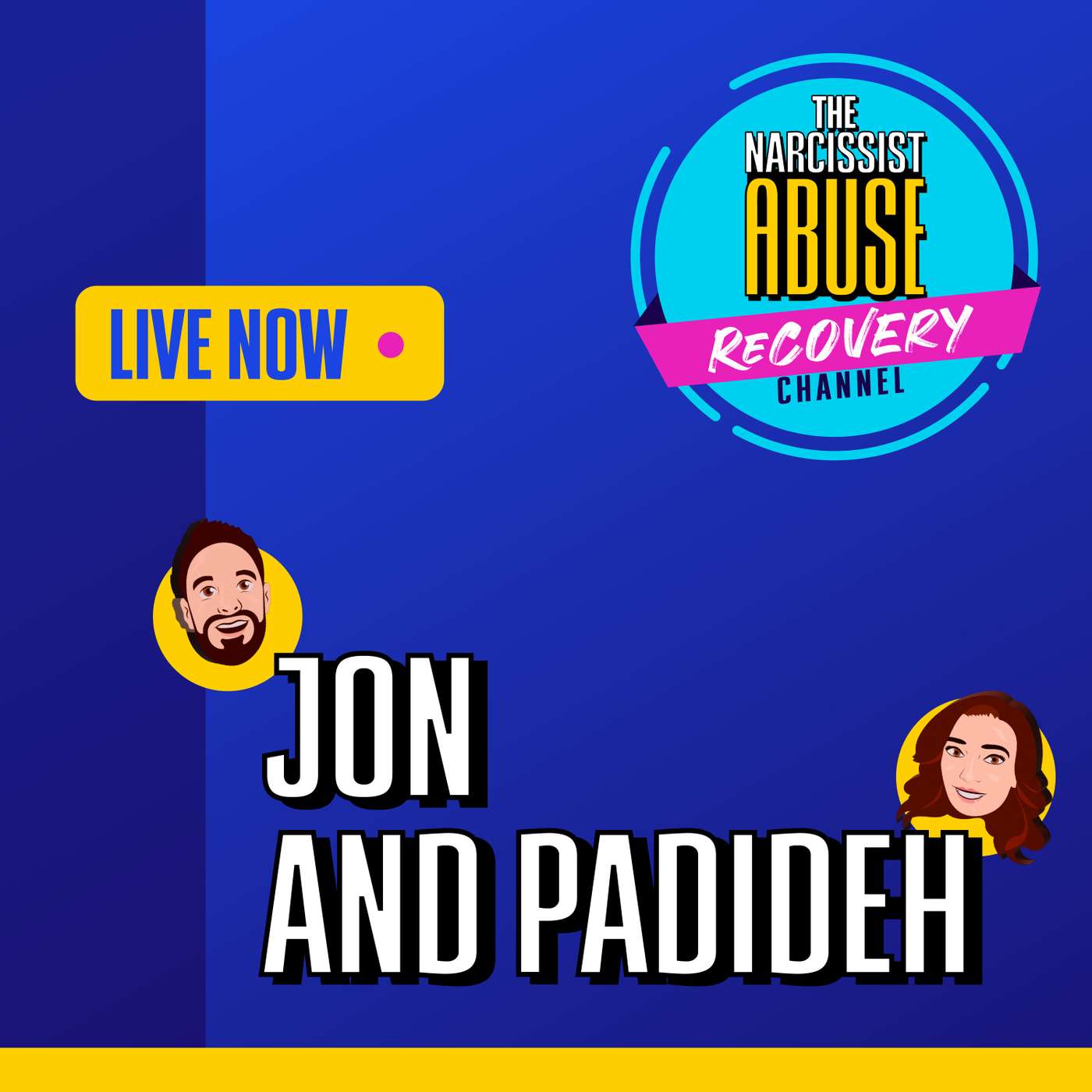Discover The Narcissist Abuse Recovery Channel
The Narcissist Abuse Recovery Channel

The Narcissist Abuse Recovery Channel
Author: Padideh & Jon
Subscribed: 21Played: 69Subscribe
Share
© Narcissist Abuse Recovery Channel
Description
The Narcissist Abuse Recovery Channel is a transformative and supportive Podcast, dedicated to helping those who are, or have been, abused by narcissists to heal from the ravages of narcissistic abuse. Our show is a lifeline for those who are looking for next steps in their emotional and psychological healing, offering expert guidance and practical solutions for those who are in narcissistic relationships or are rebuilding their lives after narcissistic abuse. The hosts are Attorney Padideh Jafari and Jon McKenney who have helped hundreds of people in their narcissistic abuse recovery and know the journey personally in their own lives.
20 Episodes
Reverse
Summary In this conversation, Jon McKenney uses a Star Trek analogy to explain the behavior of narcissists, illustrating how their interactions can lead to chaos when confronted with truth. He emphasizes that narcissists operate in an 'opposite world' where they resist resolution and continue their destructive patterns, leaving others to cope with the aftermath. Takeaways Narcissists operate in a way that is contrary to normal expectations.Using analogies, like Star Trek, can help explain complex behaviors.Confronting a narcissist with truth can create chaos.Narcissists do not seek resolution in conversations.The behavior of narcissists can be likened to characters in an alternate universe.Understanding narcissism can help in managing relationships with such individuals.The impact of narcissism extends to marginalized individuals.Conversations with narcissists often lead to frustration and confusion.It's important to recognize the patterns of narcissistic behavior.Living with the consequences of a narcissist's actions is often unavoidable. Sound bites "It was a ship of destruction""They don't want resolution""Narcissists are just like that" Chapters 00:00 Introduction and Personal Updates00:56 Understanding the Dynamics of Narcissistic Relationships04:28 The Overarching Premise in Talking About How Narcissists Approach Sex
Summary In this enlightening conversation, Jon McKenney, Padideh Jafari, and Laura Temin delve into the complexities of narcissistic abuse, the journey to healing, and the transformative power of hypnotherapy. They explore the emotional turmoil faced by victims, the impact of trauma on self-identity, and the importance of rebuilding trust in oneself. Laura shares her insights on how hypnotherapy can aid in the healing process, emphasizing the need for a supportive environment and the role of spirituality in recovery. The discussion highlights the significance of understanding one's experiences and the journey towards emotional health and personal growth. Takeaways Narcissistic abuse often leads to self-doubt and insecurity.Many victims of narcissistic abuse believe they are the problem.Therapy is a long process, often taking years before seeking help.Hypnotherapy can help address deep-seated emotional issues.Trusting oneself is crucial for recovery from trauma.The cycle of hope in abusive relationships can be damaging.PTSD is not just about the trauma but also about internalized beliefs.Healing involves both intellectual understanding and emotional processing.Spirituality can play a significant role in the healing journey.It's important to differentiate between toxic behavior and narcissistic personality disorder. Sound bites"You wind up questioning reality.""It's not just me in the room." Chapters 00:00 Introduction and Personal Connections01:49 Understanding Narcissistic Abuse04:40 The Journey to Therapy09:42 The Impact of Trauma and Self-Doubt14:46 The Cycle of Hope and Manipulation19:20 Exploring PTSD and Its Effects23:52 The Role of Hypnotherapy in Healing29:14 Rebuilding Trust and Self-Identity34:13 The Spiritual Aspect of Healing39:04 Final Thoughts and Resources
Summary In this engaging conversation, Jon McKenney and Padideh Jafari, Esq. explore the concept of 'green flags' in relationships, particularly for those recovering from narcissistic abuse. They discuss the importance of financial transparency, emotional stability, family background, effective communication, self-awareness, and the ability to compromise. The episode emphasizes the significance of recognizing positive traits in potential partners and the necessity of open discussions about religion and politics. Listeners are encouraged to reflect on their own experiences and seek healthy relationships based on these green flags.Takeaways Financial transparency is crucial in a relationship.Emotional stability leads to a peaceful environment.You marry the family, so assess their dynamics.Communication is key to resolving conflicts.Self-awareness in a partner indicates emotional health.Compromise is essential for a balanced relationship.Discussing religion and politics is important for compatibility.Look for partners who can handle criticism gracefully.Recognizing green flags helps in healing from past trauma.Patience is necessary when dating after narcissistic abuse.Chapters 00:00 Introduction and Conference Recap03:46 Exploring Green Flags in Relationships09:38 Financial Transparency and Stability13:58 Emotional Stability and Consistency21:56 The Importance of Family Background30:03 Communication and Conflict Resolution39:30 Self-Awareness and Compromise49:28 Discussing Religion and Politics
Summary In this conversation, Jon McKenney and Padideh Jafari discuss their personal experiences with divorce, the emotional challenges involved, and the impact of narcissism on relationships. They explore the role of faith in their decisions to divorce, the importance of understanding mental health, and the lessons learned throughout their journeys. The discussion emphasizes the need for self-reflection, accountability, and the hope for healing and peace after divorce. Takeaways Divorce is a complex emotional process that requires time and reflection.Understanding narcissism can help in recognizing unhealthy relationship patterns.Faith can complicate the decision to divorce but can also provide clarity.It's important to seek therapy and support during the divorce process.Self-accountability is crucial in understanding one's role in the marriage.Many people hold onto hope for reconciliation, even in unhealthy relationships.Divorce should not be a hasty decision; it requires careful consideration.The emotional toll of divorce can be profound and long-lasting.Finding peace after divorce is possible and essential for moving forward.Learning from past experiences can lead to healthier future relationships.Chapters 00:00 Introduction and Personal Updates02:09 Navigating Divorce: Personal Experiences08:00 Understanding the Emotional Impact of Divorce13:56 The Role of Faith in Divorce Decisions19:39 The Challenges of Divorce Proceedings21:52 Signs and Dreams: Forewarnings in Relationships25:48 The Dream of Digging for Truth29:39 Understanding Emotional Abandonment32:29 The Empath's Struggle in Relationships35:24 The Weight of Vows and Sacrifice38:16 Defining Marriage Beyond Legalities47:33 Navigating Divorce Decisions54:13 Finding Peace After Divorce
Summary: In this conversation, Jon McKenney and Padideh Jafari start season 4 by delving into the complex topic of spiritual narcissism, exploring the tactics used by narcissists within religious contexts and the challenges faced by victims. They discuss the taboo nature of spiritual abuse, the role of the church and other religious institutions in perpetuating these issues, and the impact of divorce on personal faith. The conversation emphasizes the importance of recognizing toxic relationships, the need for accountability, and the journey towards healing and self-discovery.Takeaways: Spiritual narcissism is a taboo topic that many avoid discussing.Victims often feel isolated and misunderstood in their experiences.Churches frequently fail to support victims and may side with the abuser.Narcissists use tactics like gaslighting and manipulation to maintain control.The church's response to divorce can further alienate victims.Submission in relationships has boundaries and should not lead to abuse.Judgment from the church can exacerbate feelings of isolation for victims.Faith can be questioned in the aftermath of narcissistic abuse.Healing is possible, and victims are not alone in their struggles.It's important to set boundaries and practice no contact with narcissists. Titles Unmasking Spiritual NarcissismThe Church's Role in Spiritual Abuse Sound bites: "They paint you as irreligious.""Your God has not betrayed you." Chapters: 00:00 Introduction and Season Four Kickoff01:14 Exploring Spiritual Narcissism03:06 The Taboo Nature of Spiritual Narcissism05:57 Personal Experiences with Spiritual Narcissism09:01 Tactics of Spiritual Narcissists11:58 The Role of the Church in Narcissistic Relationships14:53 Submission and Leadership Dynamics18:03 Judgment and Accountability in the Church20:44 The Impact of Narcissism on Relationships23:44 Conclusion and Call to Action26:39 Judgment in Religious Communities29:31 Narcissism and Religious Texts32:26 The Challenge of No Contact36:21 Forgiveness vs. No Contact40:04 Questioning Faith and Community44:26 Understanding True Faith vs. Narcissism
Summary In this conversation, John and Padideh explore the concept of spiritual narcissism, discussing its characteristics, the God complex often associated with narcissists, and the impact of such individuals on faith communities. They emphasize the disconnect between professed faith and actual behavior among narcissists, highlighting the importance of self-control and genuine faith in practice, in relationships. The discussion also touches on the challenges faced by those in religious institutions and the need for awareness and action when dealing with narcissistic relationships. Takeaways Spiritual narcissism exists across various religious institutions.Narcissists often use religion to manipulate and control others.The God complex is a common trait among narcissists.Narcissists lack self-awareness and cannot recognize their wrongdoing.Many spiritual leaders may exhibit narcissistic traits.Genuine faith should be reflected in actions and behavior.Narcissists thrive in environments of pretense and superficiality.It's crucial to assess the motives behind actions in faith communities.Victims of narcissism often struggle with feelings of guilt and obligation.Leaving a narcissistic relationship requires careful planning and support.Chapters 00:00 Introduction and Context Setting02:53 Understanding Spiritual Narcissism05:53 The God Complex in Narcissism08:43 The Impact of Spiritual Narcissism on Relationships12:01 Navigating Religious Beliefs and Abuse14:50 The Disconnect Between Faith and Actions17:58 Communication Challenges in Relationships20:42 Conclusion and Reflections24:40 Navigating Anger and Boundaries in Relationships26:40 The Disconnect Between Faith and Reality28:37 The Illusion of the Perfect Couple30:17 The Exhaustion of Meeting Unrealistic Expectations32:48 Narcissism in Religious Settings35:38 Motives Behind Appearance and Behavior37:43 The Role of Pastors and Spiritual Leaders40:38 The Impact of Spiritual Narcissism42:35 Identifying True Humility vs. Narcissism49:27 Evaluating Relationships Through the Lens of Faith
Summary In this conversation, Jon McKenney and Padideh Jafari along with their special guest Scott Silverman, discuss the complex relationship between trauma bonding and addiction, exploring how these issues manifest in families and relationships, and give some strategies to recover from it's grip. They delve into the signs of trauma bonding, the impact of untreated trauma, and the importance of establishing healthy boundaries. The discussion also highlights the healing process, the role of therapy, and practical tools for recovery, emphasizing the need for education and self-reflection in overcoming these challenges. Takeaways Trauma bonding often occurs in relationships with narcissists.Untreated trauma can amplify issues within families.Addiction is a family disease that affects everyone involved.Recognizing signs of trauma bonding is crucial for recovery.Establishing healthy boundaries is essential for healing.The healing process can take time and requires support.Education is key to understanding trauma and addiction.Self-reflection tools like journaling can aid recovery.Victims often feel guilt and responsibility for the abuser's actions.Seeking professional help is important for overcoming trauma.
🎙️ Podcast SummaryIn this heartfelt and revealing episode of the Narcissist Abuse Recovery Channel, co-hosts Jon McKenney and Padideh Jafari dive into the realities of recovering from narcissistic abuse. Both survivors themselves, they share personal stories, emotional turning points, and essential strategies for healing. From escaping toxic marriages to rebuilding identity and trust, this episode offers both empathy and guidance for listeners navigating their own recovery.The episode emphasizes that recovery is possible but often non-linear. Key insights include making an exit plan, setting firm boundaries (like no-contact or “gray rock” techniques), seeking therapy or coaching, and evaluating one’s role in past patterns. The discussion also covers the dangers of jumping into new relationships too quickly and the power of community support.⏱️ Chapters & Timestamps00:00 – IntroductionJon and Padideh discuss being back in the studio together.Light conversation about moving, gas prices, and LA culture shock.05:30 – The Turning Point: Realizing the AbusePadideh and Jon reflect on how they discovered their partners were narcissists—often after the relationship ended.Narcissistic patterns recognized in hindsight.13:10 – Emotional Aftermath & Trauma BondingWhy it’s so hard to leave.Understanding trauma bonds and the slow road to recovery.20:30 – The Need to Escape, Not Just LeavePadideh shares how her therapist helped her escape.The critical role of safety and strategic exits.27:00 – No Contact and Emotional DisconnectionTechniques like “gray rock” and no-contact.Why negotiation doesn't work with narcissists.33:00 – Making Peace Through EffortThe importance of trying every avenue (therapy, counseling) so survivors can walk away with peace of mind.40:10 – Choosing YourselfWhy choosing self-preservation isn't selfish—it’s survival.The mindset shift required for empaths and caretakers.47:00 – Community, Therapy, and CoachingHow trusted people (therapists, friends, coaches) play crucial roles in recovery.Redefining “family” and finding new support systems.55:15 – Don’t Rush Into the Next RelationshipDangers of rebound relationships.Taking the time to understand why the narcissistic partner was appealing.1:00:00 – Vetting Future PartnersPadideh discusses how she let her trusted inner circle help evaluate her new relationship before remarrying.1:05:30 – Final ThoughtsLetting go of guilt, accepting recovery as a process, and finding peace.Encouragement to reach out for support.
Summary In this engaging conversation, Jon and Padideh explore the often-overlooked topic of male victims of narcissistic abuse, particularly by female narcissists. They share personal stories, insights, and the importance of understanding the dynamics of narcissistic relationships. The discussion highlights the need for support and validation for men who experience emotional abuse, as well as the role of women in recognizing and addressing these issues. The conversation also delves into the differences between covert and overt narcissism, the long-term effects of such relationships, and the importance of seeking help and community. Takeaways Male victims of narcissistic abuse often feel isolated and unheard.There is a significant amount of literature focused on female victims, leaving male experiences underrepresented.Women may follow male victim social media channels to understand the abuse their partners face.Covert narcissism is often more damaging and harder to identify than overt narcissism.Men are often expected to tolerate abuse, which complicates their ability to seek help.The impact of narcissistic relationships can last long after divorce, affecting future relationships and mental health.Parental alienation is a common tactic used by narcissists to control their ex-partners and children.Support systems are crucial for victims of narcissistic abuse, regardless of gender.Acknowledging the abuse is a significant step for male victims in their healing journey.Sound bites "Men have this tolerance for abuse.""Narcissists are afraid of abandonment.""You're not alone in this." Chapters 00:00 Introduction and Podcast Launch Party Highlights02:47 Exploring Male Victims of Narcissistic Abuse04:42 The Journey of Understanding Narcissism06:58 Personal Stories of Narcissistic Relationships10:33 The Impact of Female Narcissists on Families12:23 The Covert Nature of Female Narcissism15:18 Understanding Male Abuse and Societal Perceptions18:05 The Challenge of Acknowledging Abuse21:28 The Need for Balanced Perspectives on Abuse25:39 The Power of First Impressions in Court27:58 The Struggles of Divorce and Self-Preservation29:51 Understanding Covert Narcissism31:44 The Evolving Court System and Custody Battles34:03 Parental Alienation and Its Impact35:28 The Roots of Narcissism and Trauma39:31 The Cycle of Narcissistic Abuse43:40 The Importance of Support and Understanding51:16 Shining a Light on Male Victims of Narcissism
Summary In this episode, Padideh Jafari and Jon McKenney engage in a deep conversation with Bill Eddy, a lawyer and founder of the High Conflict Institute. They explore the complexities of narcissistic relationships, the psychological dynamics that keep individuals trapped, and the strategies for breaking free from such toxic environments. Bill shares insights from his extensive experience in family law and mediation, emphasizing the importance of self-awareness and seeking help in overcoming the challenges posed by high conflict personalities. In this conversation, Padideh Jafari, Esq. and Jon McKenney discuss the complexities of navigating relationships with narcissistic partners, the emotional toll of coercive control, and the challenges of co-parenting in high conflict situations. They emphasize the importance of seeking therapy, understanding the dynamics of abuse, and the necessity of reaching out for support. The discussion also highlights the need for education on recognizing unhealthy patterns and the resources available for individuals in these situations. Takeaways Bill Eddy has a background in social work and law, focusing on high conflict situations.Narcissistic relationships often involve a barrage of negative messages that erode self-esteem.The principle of reciprocity plays a significant role in abusive dynamics.People often feel trapped due to financial and psychological factors in narcissistic relationships.Self-talk is crucial for rebuilding self-esteem after abuse.Seeking professional help is essential for recovery from narcissistic abuse.Cultural awareness about narcissistic abuse is necessary for broader understanding.Men may be slower to recognize their own abuse due to societal expectations.Healthy relationships require two whole individuals, not one completing the other. Coercive control can manifest financially without physical violence.Shame can prevent men from taking action in abusive situations.Couples counseling may help, but it's not always effective with narcissists.Men often feel their masculinity is challenged in abusive relationships.Exhausting all options before leaving a relationship is crucial.Co-parenting with a narcissist requires specific skills and strategies.Custody disputes can be manipulated by narcissistic parents post-divorce.Isolation can exacerbate feelings of helplessness in abusive situations.Finding the right therapist is essential for recovery.Education and awareness can empower individuals to recognize unhealthy patterns. Sound Bites "It's All Your Fault.""It's like a magnet being held in.""You're a terrible parent.""It's a story that they spin.""You need to be two whole people.""I should be enough for you.""No one deserves abuse.""Don't exhaust yourself there.""Divorce was not my first thing.""You need to leave this person.""It takes two people to make a healthy marriage but only one to make a bad one." Chapters 00:00 Introduction to the Podcast and Guest02:24 Bill Eddy's Background and Work06:57 Understanding Narcissistic Relationships11:23 The Psychological Dynamics of Leaving19:45 Strategies for Breaking Free from Narcissistic Abuse24:23 Understanding Coercive Control and Emotional Abuse26:01 The Impact of Shame on Men in Abusive Relationships28:09 Navigating Therapy with Narcissistic Partners30:55 The Importance of Exhausting Options Before Leaving34:06 Co-Parenting Challenges with Narcissistic Ex-Partners37:27 Custody Disputes and Narcissistic Manipulation42:17 The Importance of Reaching Out for Support46:04 Finding the Right Support and Understanding the Dynamics of Abuse47:36 Resources for Navigating High Conflict Relationships
Summary In this conversation, Jon McKenney and Padideh Jafari delve into the complex dynamics of narcissistic abuse, particularly focusing on the phenomenon of reactive abuse. They explore how victims of narcissistic relationships can be accused of being the abuser, the psychological mechanisms behind reactive abuse, and the challenges of communication in such toxic environments. The discussion highlights the emotional toll on victims, the illogical nature of conflicts with narcissists, and the journey towards self-awareness and healing. In this conversation, Padideh Jafari and Jon McKenney delve into the complexities of narcissistic abuse, focusing on the emotional turmoil experienced by victims. They discuss the concept of reactive abuse, the chaos created by narcissistic partners, and the challenges of leaving such relationships. The conversation emphasizes the importance of self-reflection, forgiveness, and strategies like the gray rock method for managing interactions with narcissists, especially in co-parenting situations. Ultimately, they highlight the journey of recovery and the need for victims to reclaim their identities and emotional health. Takeaways Reactive abuse is often misunderstood and misrepresented.Victims may lash out after prolonged abuse, leading to accusations of being the abuser.Narcissists often flip the script, projecting their behavior onto the victim.The cycle of abuse can lead to a breaking point where victims react out of character.Communication with a narcissist is often met with denial and deflection.Healthy relationships require conflict resolution and open communication.Victims may feel they are losing their identity in abusive relationships.The emotional toll of narcissistic abuse can lead to significant personal change.Understanding the dynamics of reactive abuse is crucial for healing.Self-awareness and therapy can help victims reclaim their identity. Recognizing the signs of abuse can be difficult.Reactive abuse is a natural response but still harmful.Narcissists thrive on chaos and conflict.Leaving an abusive relationship is a personal decision.Self-reflection is crucial for healing.Forgiveness of oneself is part of recovery.The gray rock method can help manage interactions with narcissists.Co-parenting with a narcissist requires careful strategies.It's important to own your response to abuse.Support systems are vital for recovery.Chapters 00:00 Introduction and Personal Updates01:17 Understanding Reactive Abuse03:50 Defining Reactive Abuse05:52 The Cycle of Reactive Abuse12:08 The Denial and Escalation Dynamics18:30 Communication Breakdown in Narcissistic Relationships23:20 The Illogical Nature of Narcissistic Conflict29:59 Personal Reflections on Change and Identity30:50 The Struggles of Recognizing Abuse
Summary In this conversation, Jon and Padideh discuss the complexities of covert narcissism, sharing personal experiences and insights into the traits and behaviors of covert narcissists. They explore the emotional impact of living with such individuals, the challenges of gaslighting, and the importance of recognizing these traits in relationships. The discussion also touches on the duality of covert versus overt narcissism and the often hidden nature of the abuse inflicted by covert narcissists. In this conversation, Jon and Padideh discuss the emotional and financial toll of relationships with narcissists, particularly focusing on covert narcissism. They share personal experiences of emotional abuse, the struggle for validation, and the challenges faced during and after divorce. The discussion highlights the importance of recognizing the signs of narcissistic behavior, the impact on mental health, and the journey towards recovery and finding peace after leaving such toxic relationships.Takeaways Covert narcissists are often perceived as nice people by outsiders.They lack empathy and can be spiritually devoid of goodness.The duality of covert and overt narcissism creates different challenges for victims.Gaslighting is a common tactic used by covert narcissists.Victims often feel isolated and unheard due to the covert nature of the abuse.Covert narcissists prioritize their public persona over genuine relationships.Toxic amnesia is a significant issue in relationships with narcissists.Personal experiences can provide insight into the traits of narcissists.Recognizing the signs of covert narcissism is crucial for victims.Healing from narcissistic abuse often requires professional support. It's hard to prove the abuse of covert narcissists.The public persona of narcissists often blinds others to the truth.Financial abuse is a common tactic used by narcissists.Narcissists often push their partners to the brink before leaving.The emotional toll of living with a narcissist is profound.Journaling can help victims keep track of the truth.Narcissists often play the victim to gain sympathy from others.Divorce from a narcissist can be a long and painful process.Many victims lose friends and family during and after the relationship.Recovery is possible, and peace can be found after leaving. Chapters 00:00 Introduction and Personal Updates03:06 Understanding Covert Narcissism05:50 The Duality of Covert vs Overt Narcissism08:56 Traits of Covert Narcissists12:05 Personal Experiences with Narcissism15:00 Gaslighting and Toxic Amnesia18:00 The Impact of Covert Narcissism on Relationships21:04 Conclusion and Reflections29:28 The Emotional Toll of Narcissistic Relationships36:11 The Struggle for Validation and Support45:12 Financial Abuse and Control in Narcissistic Dynamics56:52 The Long Road to Recovery and Moving On
In this episode, Padideh Jafari speaks from her decades in divorce law and gives expert advice on how to win a custody battle. Her experience speaks particularly to winning custody battles for the victims of those who have spouses with narcissistic personality disorder.
In this episode of the Narcissist Abuse Recovery Channel, Jon McKenney and Padideh Jafari discuss their personal experiences with divorce from narcissistic partners. They explore the emotional struggles and guilt that often accompany leaving such relationships, the nature of marriage, and the importance of recognizing the illusion of a perfect relationship. The conversation emphasizes the need for healing and self-forgiveness after experiencing narcissistic abuse, encouraging listeners to seek therapy and support as they navigate their recovery journey.Chapters:00:00 Introduction and Personal Backgrounds03:03 Divorce Statistics and Personal Experiences06:08 Guilt and Emotional Struggles After Divorce12:00 Understanding the Nature of Marriage17:57 The Illusion of a Perfect Relationship21:08 Healing and Moving Forward After Narcissistic Abuse
Vicki Gunvalson is a mother of two, a proud “Nana” of 4, a self-made business woman, a long-time resident of Orange County. Vicki was the original cast member of Bravo’s hit reality TV show, The Real Housewives of Orange County, appearing since its inception – 19 seasons ago. Vicki also appeared on the Peacock shows Ultimate Girls Trip 2 in the Berkshires and Ultimate Girls Trip 4 in Morocco. She has a drive for success and has the strength and tenacity to back it up with her successful Life Insurance & Retirement Planning Company, Coto Insurance & Financial Services, for over 34+ years.Despite all of Vicki’s successes, Vicki has encountered narcissists in her life and spends some time with Jon McKenney and Padideh Jafari talking about her experiences, her pain, her faith, and her healing. You’ll find her insight through her struggles meaningful as she speaks from the heart and tells her story of the abuse she experienced from narcissists.Narcissist Abuse Recovery Channel: IG: @narc.podcast www.narcissistabuserecoverychannel.comVicki Gunvalson: linkedin.com/vgunvalson IG/@vickigunvalsonCheck out some of the key moments:0.00 Getting Acquainted4:15 Wanting Love & The First Narcissist7:17 Discoveries9:00 Consequences10:25 Recovery & Understanding Narcissism12:00 Again14:45 Cheating20:40 Coming from a Great Home22:00 Being in the Spotlight24:00 Remembrances of Abuse30:00 The Trouble Finding People Who Love32:00 Losing the Ability to Trust36:00 Red Flags, Future Relationships, and Boundaries40:40 Not Compromising & “The List”43:00 Current WorkSee omnystudio.com/listener for privacy information.
Join hosts Jon McKenny and Padideh Jafari on the Narcissist Abuse Recovery Channel for a raw and deeply personal conversation with Jared Mello. Jared opens up about his journey from addiction and narcissistic abuse to healing and self-discovery, offering invaluable insights into how Radical Self-Respect became the key to reclaiming his life. This episode is more than a story—it’s a heartfelt reminder that even in the darkest moments, there’s a path to healing and hope. Subscribe and listen to more episodes at: Olasmedia.com Follow the podcast on instagram at narc.podcast Show sponsored by: Jafari Law & Mediation Office The key moments in this episode are: 00:00:00 - Introduction to Jared Mello 00:03:22 - The Roots of Addiction and Narcissistic Family Dynamics 00:09:15 - Consequences of Addiction: Loss and Survival 00:14:31 - Discovering Radical Self-Respect 00:20:21 - Navigating Relationships and Emotional Recovery 00:26:00 - Breaking the Cycle: Healing from Narcissistic Abuse 00:31:02 - Transforming Pain into Purpose 00:36:08 - The Stages of Healing and Letting Go of Resentment 00:42:43 - How Radical Self-Respect Can Save Relationships 00:48:13 - Jared’s Message of Hope and Support See omnystudio.com/listener for privacy information.
In this powerful episode of the Narcissist Abuse Recovery Channel, hosts Jon McKenny and Padideh Jafari delve into the heartbreaking reality of parental alienation. They explore how narcissists use children as tools in their ongoing conflicts, creating deep divides that isolate one parent from their children. Through firsthand accounts and legal insights, Jon and Padideh examine the tactics narcissists employ and share strategies for maintaining hope and resilience. Listeners will gain a greater understanding of the long-term impacts of parental alienation and learn how to approach healing and reconnection. Subscribe and listen to more episodes at: Olasmedia.com Follow the podcast on instagram at narc.podcast Show sponsored by: Jafari Law & Mediation Office The key moments in this episode are: 00:00:00 - Understanding Parental Alienation 00:03:22 - Tactics of Narcissists in Alienation 00:05:28 - Legal vs. Emotional Alienation 00:10:06 - Realizing and Coping with Alienation 00:14:12 - Manipulation and Psychological Impact on Children 00:20:39 - Third Parties and Reinforcing Alienation 00:24:16 - Steps to Reconnect with Alienated Children 00:28:59 - Importance of Staying Neutral About the Ex 00:36:08 - Children’s Discovery of Manipulation 00:42:43 - Advice for Parents in Relationships with NarcissistsSee omnystudio.com/listener for privacy information.
If you're feeling emotionally drained and physically exhausted from the aftermath of narcissistic abuse, then you are not alone! Imagine being stuck in a cycle of confusion, unable to see a way out, and feeling like your life is constantly clouded by chaos. The pain and trauma from this experience might be overwhelming, but what if there's a way to break free from this cycle and regain control over your mind and body? Luke Holbrook is a seasoned personal trainer with a unique perspective on the mind-body connection in healing from narcissistic abuse. Having worked with diverse clients, he understands the transformative power of physical health on emotional well-being. Luke's approach emphasizes the gradual integration of positive choices and physical activity, recognizing the role of exercise in restoring confidence and independence after enduring narcissistic relationships. Through his own experiences and those of his clients, Luke brings a relatable and empathetic understanding to the complexities of emotional recovery, making him a valuable resource for individuals seeking to improve their overall well-being. Subscribe and listen to more episodes at: Olasmedia.com Show sponsored by: Jafari Law & Mediation Office The key moments in this episode are: 00:00:01 - The Power of Physical Training in Narcissistic Abuse Recovery00:02:42 - Self-Care and Independence Through Physical Training00:06:51 - Overcoming Cognitive Distortions with Exercise00:10:55 - Integrating Self-Care and Confidence00:13:25 - Affordable and Accessible Self-Care00:14:42 - Importance of Emotional Wellbeing00:16:15 - Overcoming Depression and Creating Positive Feedback Loop00:17:30 - Mind-Body Connection and Emotional Eating00:19:26 - Personal Wellbeing and Coping Strategies00:25:19 - Building Discipline and Transforming Mindset00:27:41 - Overcoming Dislike for Healthy Habits00:29:23 - Delayed Gratification and Building Momentum00:30:52 - Importance of Exercise and Mind-Body Connection00:36:52 - Reasons for Staying in Narcissistic Relationships00:39:16 - Gym as a Life-Altering Experience00:41:44 - Importance of Maintenance and Attention in Life00:42:59 - Impact of Narcissistic Abuse on Health00:44:56 - Luke's Approach to Training 00:46:44 - Overcoming Physical Challenges and Emotional Resilience00:49:03 - Podcast Conclusion and Contact InformationSee omnystudio.com/listener for privacy information.
Have you ever heard the myths about narcissism? Like how they're all the same and can't change? Or how about the belief that all narcissists are just self-centered and arrogant? Maybe you've come across the myth that all narcissists are sociopaths or psychopaths. The truth is, there are so many misconceptions about narcissism, and understanding the reality can be a game-changer. Here's the truth in a way that will leave you enlightened and empowered. John Tsilimparis is a licensed marriage and family psychotherapist based in Los Angeles, California, with over 30 years of experience. Specializing in anxiety disorders, depression, and addiction, Tsilimparis is well-versed in navigating the complexities of human behavior. Known for his expertise in understanding narcissistic behavior and other characterological disorders, he offers valuable insights into the anatomy of a narcissist. With a professional and insightful approach, He provides practical advice and a deeper understanding of challenging relationships, making him an invaluable resource in the field of psychology. Subscribe and listen to more episodes at: Olasmedia.com Show sponsored by: Jafari Law & Mediation Office The key moments in this episode are: 00:00:01 - Understanding Narcissistic Behavior00:00:41 - Similar Characteristics of Narcissism and Sociopathy00:01:54 - Introduction of John Tsilimparis, LMFT00:04:29 - Career Choice in Psychotherapy00:08:08 - Differentiating Healthy and Extreme Narcissism00:15:25 - The Impact of Trauma on Narcissistic Behavior00:17:07 - Common Fear of Abandonment00:20:53 - Gender Disparities in Narcissistic Behavior00:22:40 - Covert vs. Overt Narcissism00:27:24 - Therapy and Couples Counseling for Narcissists00:30:26 - Impact of Negativity on Relationships00:31:18 - Understanding Right from Wrong00:32:46 - Fear of Abandonment00:37:41 - Defense Mechanisms and Coping Strategies00:42:57 - Trauma Bonding and Emotional Attachment00:45:02 - Emotional Turmoil in Relationships00:46:21 - Impact of Gaslighting00:47:26 - Trauma of Divorce00:49:52 - Understanding NarcissismSee omnystudio.com/listener for privacy information.
Discover the shocking truth about narcissists and their devastating impact on relationships. Uncover the real-life experiences of survivors Jon and Padideh as they navigate the treacherous waters of narcissistic abuse. From financial manipulation to emotional self-centeredness, these firsthand accounts will leave you reeling. But that's not all. Tune in as they unveil practical solutions and holistic healing methods to help you break free from the grips of narcissistic abuse. Don't miss out on this eye-opening journey from victim to survivor. Stay tuned for expert insights, real-life stories, and actionable steps to rebuild a fulfilling life post-narcissistic abuse. Let the Narcissist Abuse Recovery Podcast guide you to a brighter future.Subscribe and listen to more episodes at: Olasmedia.comShow sponsored by: Jafari Law & Mediation OfficeThe key moments in this episode are:00:00:01 - Introduction to the Podcast00:01:23 - Personal Experiences with Narcissistic Abuse00:02:01 - Launching the Podcast00:05:52 - Recognizing Narcissistic Abuse00:10:35 - Protecting the Abuser00:15:29 - Cluster B Personality Disorders00:17:46 - Lack of Empathy and Compassion00:20:19 - Lack of Self-Awareness00:25:14 - Manipulative and Controlling Behavior00:27:52 - Emotion-Driven Decision Making00:30:15 - Emotional Self-Centeredness00:31:08 - Healthy Spousal Response00:32:48 - Hope and Healing00:34:27 - Relational Tools and Narcissistic Abuse00:43:26 - Understanding the Narcissistic Experience00:44:48 - Understanding Narcissistic Personality Disorder00:45:33 - Recognizing the Evil of Narcissistic Abuse00:46:27 - Effects of Narcissistic Abuse00:47:55 - Holistic Healing Approach00:49:40 - Offering Hope and SupportSee omnystudio.com/listener for privacy information.


